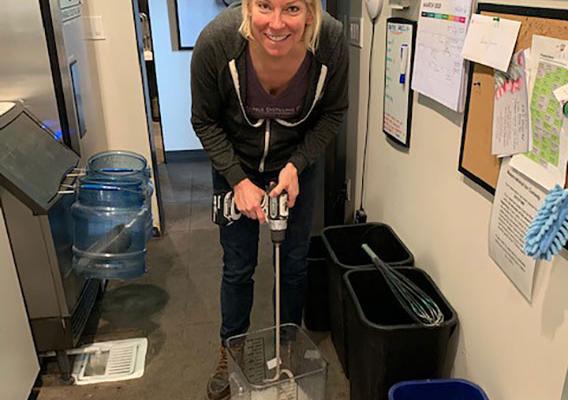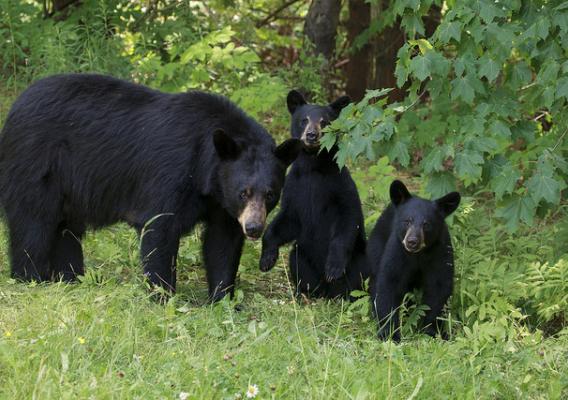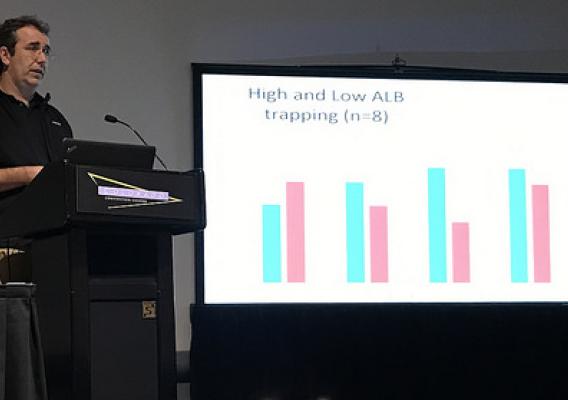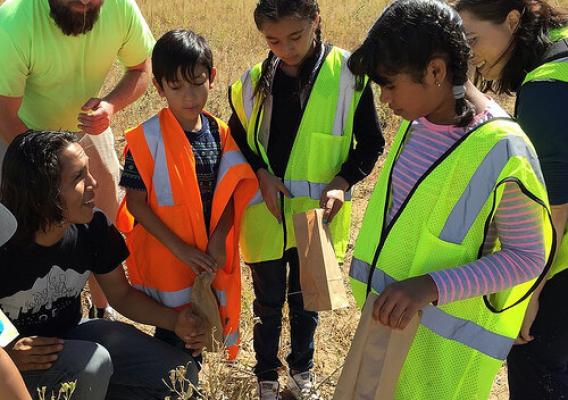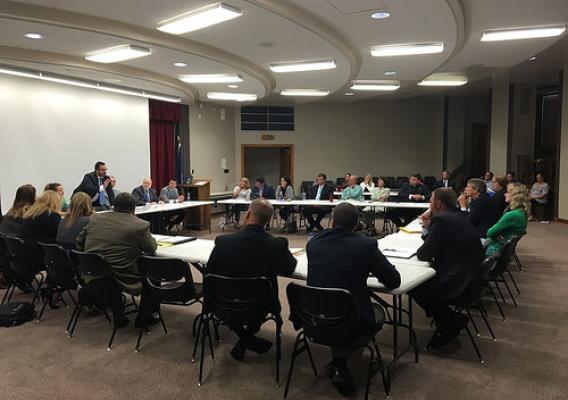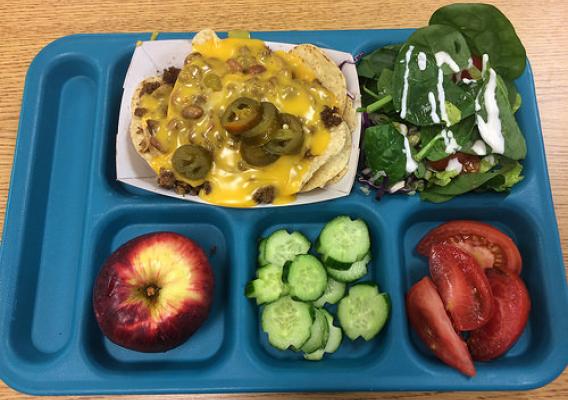A bin of acorn squash sits on a pallet at the Weld County School District 6 central kitchen, right next to a bin of yellow onions and a 1,000 pound tote of russet potatoes – all locally-grown. A walk through the facility is enough to convince anyone that Weld County School District 6 is committed to scratch-cooked, locally-grown food for its 22,000 students at 35 schools. In this rural Colorado school district, where over 40 languages are spoken at home and 66 percent of students are eligible for free or reduced price meals, fresh, tasty food is the norm – even down to the green chili, a southwestern favorite roasted in-house, using three varieties of local peppers.
About a quarter of the central kitchen is dedicated to processing fresh fruits and vegetables. Mushrooms are sliced, carrots are shredded and onions are diced. With funding from a USDA Farm to School Grant in 2013, this food hub portion of the kitchen was furnished with tables, wash stations and equipment to process local food for Weld County’s own meals and for other districts in the area.

